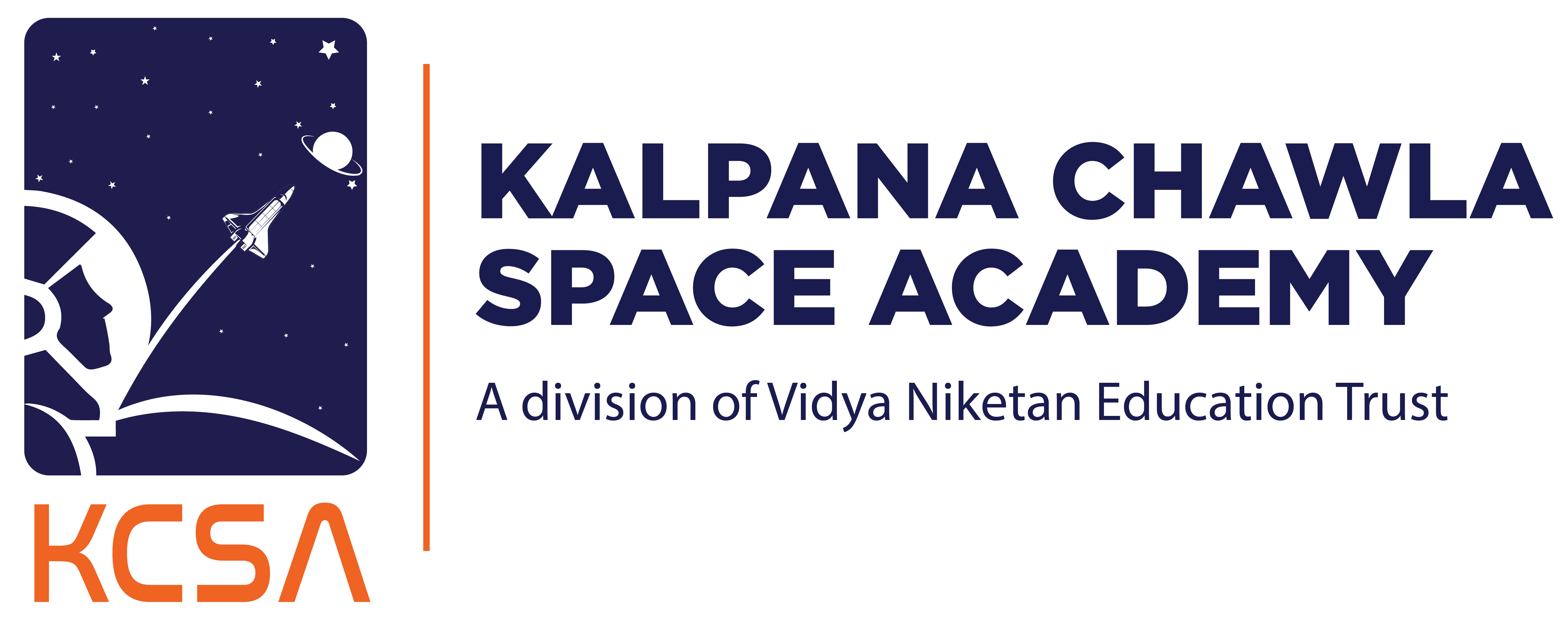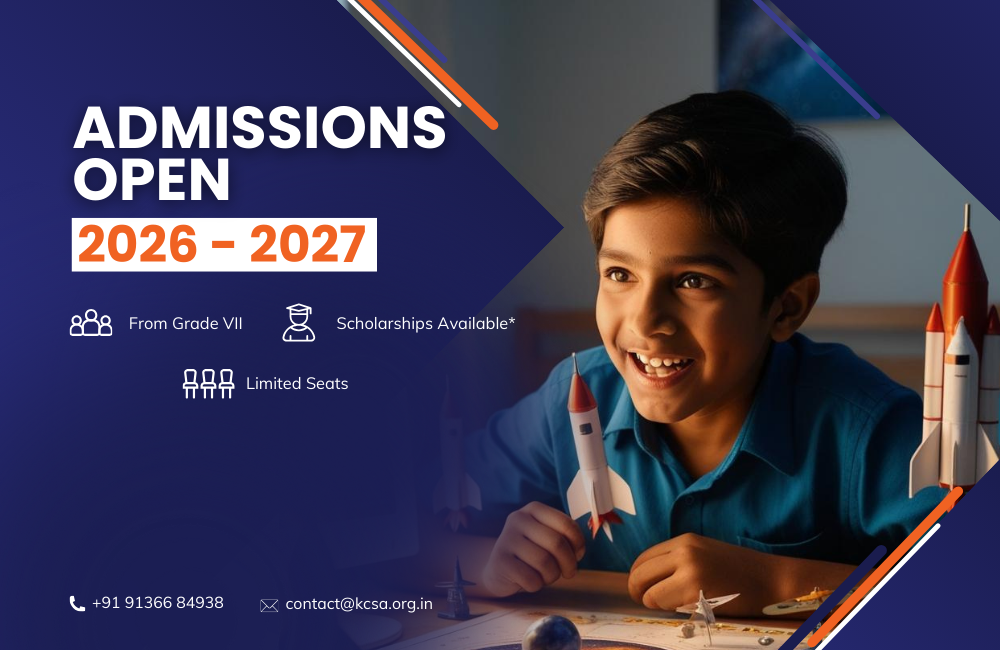Frequently Asked Questions
- Registration for KCSA Entrance Test (KCSAET): Fill out the registration form for the entrance test.
- Entrance Exam & Interview:
- Appear for the Entrance Test.
- Shortlisted candidates will be called for a Personal Interview.
- Selection: Once selected, the admission process will be initiated by the admission team.
- Fill Out the Application Form: Complete the online or offline application form with necessary personal and educational details.
- Submit Required Documents: Provide supporting documents such as transcripts, certificates, and identification as specified in the application guidelines.
- Fee Payment: Complete the fee payment process.
- Follow Up: Contact the admissions office if you need assistance with the relocation of your ward.
- KCSA has signed an MoU with ISRO for educational guidance and support to our program.
- Board of Studies with experts from prominent scientific institutions from across India and abroad.
- The pedagogy of curriculum is experiential. The curriculum is 80 percent activity-based and 20 percent theory.
- 10 state-of-art labs such as Avionics, Earth Science, Astro Physics to name a few.
- 200+ Experiments, Internships, and Capstone Projects.
- Career Counselling: Personalized guidance to help students explore career options and prepare for the job market.
- Internship/Higher Education: The academy intends to work with industry partners and the space-focused startup ecosystem to provide internships and career advancement opportunities for students.
- Networking Opportunities: Access to industry events, seminars, and conferences where students can connect with professionals and potential employers.
The academy offers a range of courses and outreach programs over the entire 6-year program with 80% activity-based learning:
- Practical-based learning: In-class learning with a major emphasis on practical learning in science, technology, and space science.
- Workshops, seminars, webinars, exhibitions, and training: For students and learners in science, technology, and space science.
- Summer/Winter Boot camps: Focused on space exploration and STEAM activities.
- Certification Programs: In collaboration with universities, offering courses in science, technology, space science, and related fields.
- Educational Outreach: Programs for schools, parents, citizens, and community groups to promote interest in space science.
The KCSA infrastructure has been developed in a sprawling 12,500 sq. ft. area at the Adv. Bapusaheb Bhonde High School.
We also offer hostel and food facilities with a very secure and safe environment, ensured through our partner tie-up.
For more details, please refer to the following link: KCSA Infrastructure Details
The academy provides various facilities and resources such as:
- KCSA Infrastructure: Currently spread across 12,500 sq. ft.
- Laboratories: Ten state-of-the-art laboratories for hands-on experiments and research.
- Activity-based Learning: 200+ experiments.
- Simulation Software: For space mission simulations and modeling.
- Library and Study Materials: Access to books, journals, and online resources related to space science.
- Computer Laboratory: For practical and research work.
- Industrial and Field Visits: For practical and research exposure.
- Internships: Internship opportunities for industry interface.
- Projects: Micro, mini, and major projects for students.
There are several ways you can support the Kalpana Chawla Space Academy's mission:
You can make a donation, volunteer your time or expertise, promote awareness about the academy’s programs, or participate in fundraising events. Every bit of support helps us continue our work and make a difference in the world of space education and exploration.
If you are interested in supporting KCSA, feel free to reach out to us by emailing contact@kcsa.org.in.

